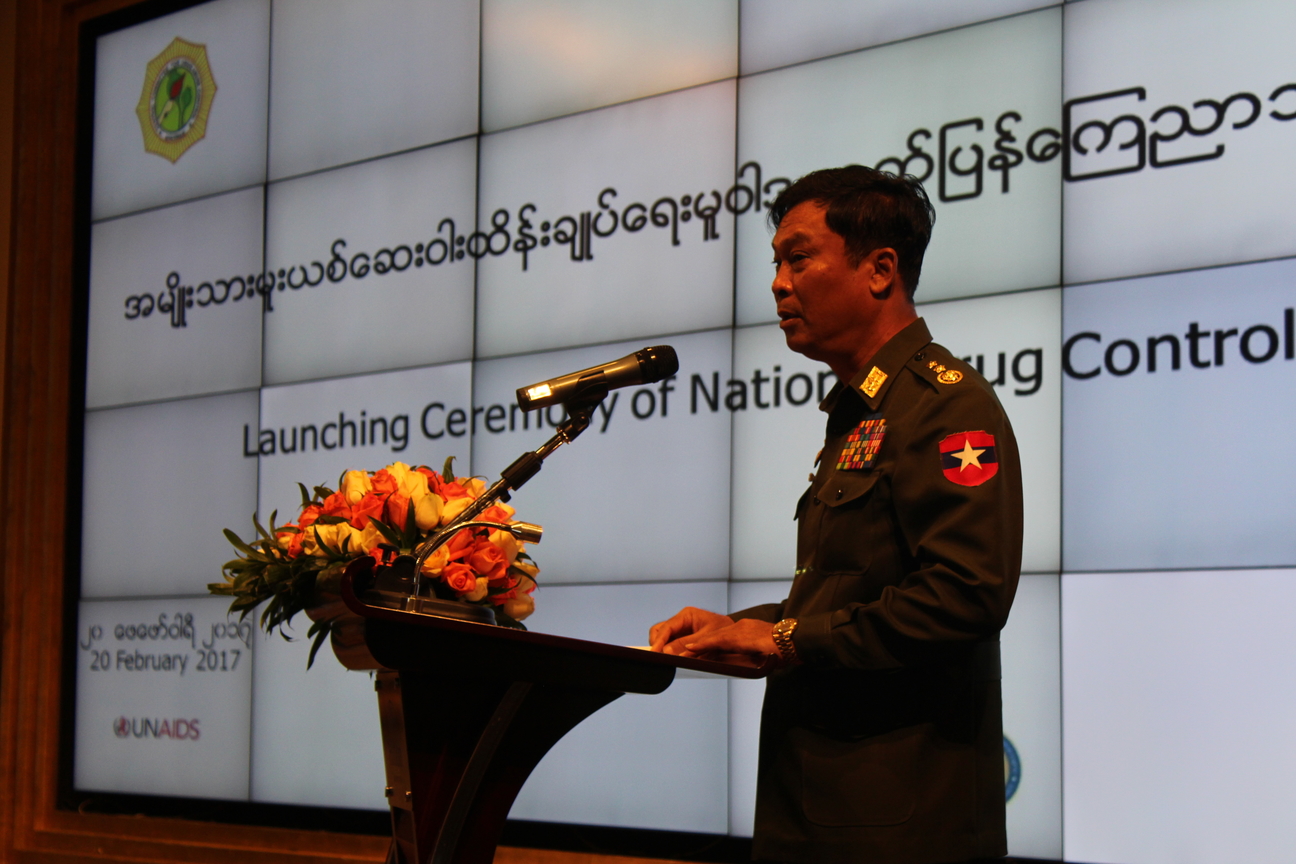Myanmar’s Ministry of Home Affairs announced the adoption of a new National Drug Control Policy at a ceremony Naypyidaw this morning. If implemented properly, the new policy will represent the government’s shift away from a crime-focused approach to combatting the negative effects of drug use and toward a health-focused approach.
The ceremony opened with a speech by Home Affairs Minister Lt.-Gen. Kyaw Swe, who described the policy as a revamped effort to tackle Myanmar’s “50-year drug problem.”
Myanmar has historically been one of the world’s largest opium-producing countries, though its output has declined in recent years. The country remains one of the world’s largest sources of methamphetamines. The government’s handling of drug use exclusively as a criminal matter has led to drug users making up nearly half of Myanmar’s prisoners, though little progress has been made in reducing addiction or its effects on communities.
While drug production, trafficking, and addiction will continue to be a target for law enforcement, the ministry’s new policy maintains that they cannot be the domain of law enforcement alone. The policy calls for these problems to be addressed simultaneously through alternative development schemes, community-based education programs, workforce training programs, and health services.
One of the most striking aspects of the new policy is that it calls for the decriminalization of personal drug use and the promotion of alternatives to imprisonment for drug offenses. Decriminalization will encourage drug users to seek medical treatment, thereby reducing the harm that might come to them, their families, and their communities, the policy says.
The National Drug Control Policy is the product of more than a year of consultations between the ministry’s Central Committee for Drug Abuse Control (CCDAC), the UN Office on Drugs and Crime (UNODC), UNAIDS, and several civil society organizations.
It also follows the recommendations of the UN General Assembly Special Session on the World Drug Problem (UNGASS) in 2016, which marked the end of the global consensus around the total elimination of drugs. Instead, it called for the redirection of resources toward decriminalization, harm reduction, stigma reduction, and medical treatment as components of a balanced solution to the world’s drug problems.
According to UNODC Southeast Asia representative Jeremy Douglas, Myanmar’s adoption of the new policy makes it the first country in the region to adopt the UNGASS framework on a national level.
The announcement of the new policy comes several days after the signing by President Htin Kyaw of newly passed amendments to Myanmar’s 1993 drug law. However, it is unclear whether the amendments, which were passed by Myanmar’s parliament last year, also accord with the UNGASS framework.





Reader Interactions